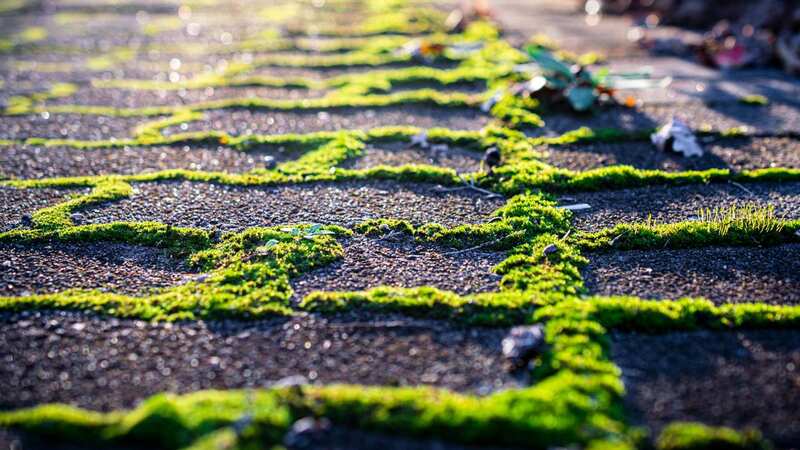Gardener's simple hack banishes pesky moss off patios, driveways and paths
This gardening hack from Monty Don will help keep moss at bay in your garden - and you only have to do it once a year.
If your lawn gets a lot of use, it's likely that you have seen moss start to grow in some areas of your garden. And if you're itching to get rid of it and get your grass back to its best condition, then this gardening trick is for you.
This time of year is perfect for tending to your lawn and ensuring that once the hot weather hits in the summer months, it's ready for your enjoyment: whether that's entertaining friends and family or lounging around reading a good book. However, it's important to tackle your moss removal and lawn care properly, or you could end up doing more harm than good.
If moss is growing on your lawn, then this is the perfect time of year to tackle it, according to Monty Don's blog in a blog. There is one main reason that moss might start appearing in your green space: water being unable to drain properly.
"Moss, for example, is always a symptom of poor drainage, made worse by shade. Unfortunately, even the best-prepared soil becomes compacted by matted roots, rain, and, especially, normal family use," explains the expert. "The answer is to work on it at least once a year by sticking a fork in the ground and wiggling it about and repeating the process every 6 inches or so."
 Make-up artist's eyeshadow trick to get 'Charlotte Tilbury' look for less money
Make-up artist's eyeshadow trick to get 'Charlotte Tilbury' look for less money
Once you have created these holes by pricking the area, "mix up equal portions of sieved topsoil, sharp sand, and sieved leaf mould or compost. If you do not have these things to hand then just sharp or silver sand will do the job. Spread it across the area you have pricked and brush it in with a stiff broom, filling the holes with the mixture. This will help drainage and feed the grass.
"It is also worth giving the lawn a good scratch with a wire rake. This will get at all the overwintering thatch and moss, and let light and water get to the soil and to the roots of the grass".
Once you've done this, give the lawn a trim, and it should grow back to its healthiest form as the weather continues to warm up, even if initially it looks a little bare after the de-mossing treatment.
If moss is appearing on your patios or paths, or other stone or brick areas in your garden, then you should sprinkle some sharp sand onto the area, and use a stiff broom to brush it in, Don has said previously, "Scour it back and forth, and this will act as an abrasive and make them much safer and be effective for quite a few weeks at a time."
Moss actually has a lot of benefits environmentally speaking, and this type of plant dates back over 450 million years - according to Kew Gardens - because of its ability to survive in such a wide range of climates and conditions. After devastation like forest fires, they will be the first plants to pop up again, stabilising the soil and allowing plants to grow there again.
They can absorb more carbon than trees, so if you're looking to be a bit more eco-friendly in your home, you can always dedicate an area of your garden to these ancient multitasking plants - creating a moss lawn instead of a traditional grass one.
Do you have a story to tell? Email: emma.mackenzie@reachplc.com
Read more similar news:
Comments:
comments powered by Disqus


































